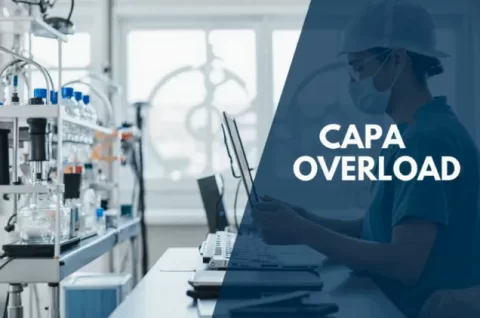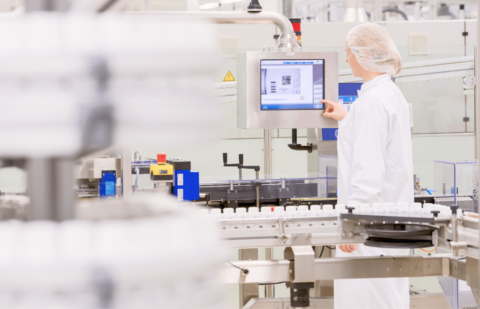In the pharmaceutical industry, conventional paper-based record-keeping systems present considerable challenges in ensuring accurate and efficient documentation, including data integrity concerns and cumbersome audit procedures.
The manual approach to record-keeping raises the risk of human error and adds complexity to compliance tracking and operational transparency. Traditional methods may result in considerable delays in batch releases, difficulties in traceability, and heightened exposure to compliance risks. Inefficiencies are not limited to basic data entry; they affect all facets of pharmaceutical operations, including quality control and supply chain management.
In a sector where accuracy and dependability are crucial, depending on obsolete systems can impede a company’s capacity to adapt to market fluctuations promptly and sustain its competitive advantage. With increasing regulatory demands and a faster manufacturing pace, adopting digital solutions like Electronic Batch Recording (EBR) is essential.
Electronic Batch Records: An Overview
Electronic Batch Records (EBR) serve as digital representations of traditional paper-based batch records, encompassing all relevant information related to the manufacturing process. EBR systems are engineered to guarantee that every phase of the manufacturing and quality assurance processes is meticulously documented, verified, and validated in real time.
Shifting to EBR provides these benefits:
- Enhanced Data Accuracy: Automated data entry and validation reduce human errors, leading to more precise records.
- Improved Traceability and Transparency: Digital systems provide a clear audit trail of all actions during the manufacturing process, facilitating compliance and quality assurance.
- Streamlined Compliance: EBRs simplify adherence to stringent regulatory standards by ensuring accurate and accessible documentation.
- Operational Efficiency: Digital records reduce the time spent on manual documentation, accelerating batch release and improving overall productivity.
The Role of Mareana in EBR Implementation
Pharma digital platforms such as Mareana are designed to address the complexities and regulatory demands of the pharmaceutical industry, facilitating a seamless transition from paper-based systems to digital solutions for pharma.
Mareana streamlines the adoption of Electronic Batch Records (EBR) within the pharmaceutical manufacturing sector. It facilitates the integration of data throughout every phase of manufacturing and quality control processes. The platform centralizes information from various sources, from raw material intake to final product testing, ensuring a seamless flow of data. This integration is essential for ensuring a transparent and traceable manufacturing process, which is important for regulatory compliance and operational efficiency.
Key Features of Mareana
- Real-Time Data Capture: The platform streamlines the collection of essential manufacturing data, minimizing the potential for human error and enhancing record accuracy.
- Centralized Documentation: All batch records and associated documentation are consolidated within the platform. This facilitates staff access to documents and enhances management efficiency, optimizing the review and approval workflows.
- Compliance Support: Mareana is designed to meet rigorous regulatory standards, including 21 CFR Part 11. The platform provides thorough audit trails, electronic signatures, and secure data management, enabling manufacturers to fulfill all compliance requirements efficiently and without extra burden.
Extending Beyond EBR to MES
A Manufacturing Execution System (MES) plays a vital role in contemporary manufacturing settings, providing essential capabilities beyond mere operational oversight. It improves decision-making and operational control across the entire manufacturing lifecycle. MES plays a crucial role in guaranteeing that manufacturing processes are carried out accurately, optimizing resource utilization, and ensuring that products adhere to quality standards.
As pharmaceutical organizations pursue enhanced integration and operational efficiency, the shift from EBR to comprehensive MES is essential.
How Mareana Supports MES Integration
- Seamless Data Flow: Mareana seamlessly integrates with EBR and MES systems, guaranteeing a continuous flow of data. This integration enables a complete digital thread from the start of the batch to its conclusion, providing a cohesive perspective on the manufacturing process.
- Enhanced Operational Visibility and Control: Mareana utilizes advanced analytics to deliver enhanced insights into production data. This capability facilitates accurate identification of process bottlenecks, allowing for focused workflow optimizations and improved process control, essential for upholding high-quality production standards.
- Support for Scalable Operations: Mareana features a scalable architecture that seamlessly supports increases in production volume and geographical expansion. It ensures optimal performance and adherence to regulations across various operational scales, allowing pharmaceutical manufacturers to respond to market demands seamlessly.
Challenges of EBR Transition
Although the advantages of moving to EBR are considerable, organizations may face various obstacles throughout this transition.
- Cultural Resistance: Resistance may arise in response to change. Managing the change process with care is crucial, as it ensures that all employees comprehend the advantages of transitioning to EBR and remain actively involved throughout the journey.
- Data Security Concerns: Ensuring the security of sensitive data is of utmost importance. Organizations must guarantee that their data management practices align with industry regulations and standards.
- Integration with Existing Systems: Effective strategic planning and expert knowledge are essential for achieving seamless integration while maintaining current workflows.
Strategies to Overcome Challenges
To overcome these challenges, organizations can implement these strategies:
- Leverage Mareana to make sure that your documentation processes are compliant and optimized.
- Consistently inform all stakeholders about advancements and modifications.
Conclusion
The shift from paper to digital documentation is essential for the pharmaceutical sector, providing significant improvements in efficiency, compliance, and decision-making processes. Mareana is a powerful platform that guarantees a smooth transition in this process. Implementing Mareana also ensures that organizations’ documentation processes are compliant and strategically optimized for future challenges and opportunities.
Are you prepared to transform your manufacturing documentation using advanced technology? Get in touch with Mareana today to discover more about the Mareana Platform or to arrange a detailed demonstration.
Enhance your operations through digital innovation—ensure your supply chain is strong, compliant, and effectively managed.




 Learn more
Learn more



